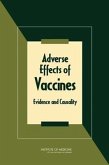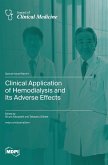Miracle cure or lethal medicine? In 1949, chloramphenicol was hailed as the greatest drug since penicillin and proved amazingly effective against a host of previously untreatable deadly diseases. Marketed as Chloromycetin, it made its manufacturer, Parke-Davis, the largest pharmaceutical company in the world. But it was marred by a tragic flaw. Three years later, in 1952, Dr. Albe Watkins, a California general practitioner, inadvertently killed his own ten-year-old son with chloramphenicol. After learning that Parke-Davis already knew about other chloramphenicol-related deaths, Watkins embarked on an extraordinary cross-country pilgrimage that led the Food and Drug Administration to launch one of the largest investigations in medical history. Chloramphenicol saved too many lives to be taken off the market, but at the same time, it proved impossible to control. During three decades of FDA and American Medical Association warnings, half a dozen congressional hearings, and hundreds of lawsuits, doctors continued to prescribe the drug for trivial infections, needlessly killing more than a thousand people. In the 1980s, potentially lethal chloramphenicol residues were detected in U.S. dairy and beef cattle. In the 1990s, the FDA has found the drug in imported shrimp. How could this have happened? In seeking the answer to that question, Adverse Reactions provides a panoramic perspective over nearly half a century of the changing relationship among the pharmaceutical industry, the medical profession, the government, and patients, revealing how and why important decisions were made that affect us all today. To tell both sides of the story, Thomas Maeder has interviewed hundreds of people, fromthe man who dug up the sample of Venezuelan compost in which chloramphenicol was discovered, to the company scientists and executives who developed and marketed it, FDA officials who investigated and regulated it, families bereaved by it, lawyers who fought the issues in court, legislators who sought to control it, and physicians who both used and misused it. Adverse Reactions tells a gripping and profoundly disturbing story about the limits of corporate responsibility, government regulation, and medical knowledge.
Hinweis: Dieser Artikel kann nur an eine deutsche Lieferadresse ausgeliefert werden.
Hinweis: Dieser Artikel kann nur an eine deutsche Lieferadresse ausgeliefert werden.








